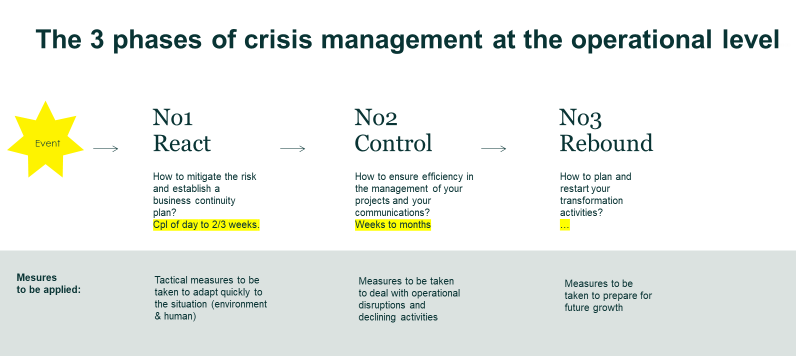Article written by Olivier Laquinte
Not only will there be a before and after COVID-19, but the crisis we are going through gives rise to a host of “turning points” in history. With this in mind, you can circle April 10, 2020 in your calendar as an important date.
Why? Our governments have made it clear that there will be no return to “normal” before a vaccine. It wasn’t the first time we heard this, but it was the first time that there had been talk of a possible resumption of economic activities following weeks of containment.
For business leaders, there are two messages to decode. The first is that certain sectors of the economy will be given the green light to restart soon. It’s good news. The second is heavier with meaning and consequences. The sustainable economic recovery will take months. The main condition for this sustainable and lasting recovery will be the availability of a vaccine.

Because we will all have to operate in an uncertain environment for several months, the control phase of the crisis now becomes even more important. What should we do to adapt during this period? Three things:
- Analyze our business model and the identify which modifications we can make to it. Think about distribution channels, market segments, products and services, partnerships, etc. Everything should be subject to adjustment. Nothing is untouchable.
- Define a transformation roadmap that will allow you to identify and prioritize your actions based on organizational / human changes, adjustments to your processes, and technological changes that you must make.
- Adopt agile management principles … you have no choice. In times of instability, you need to make sure you can adjust to the upheavals that your ecosystem will undergo.
Some agree that the wave of contagion we are currently experiencing is only the first. Like earthquakes which are followed by aftershocks, we can expect new outbreaks of contagion in the coming months, especially in the fall. The following graph, by Ashley Tchute epidemiologist for the health care system in Ontario, demonstrates this phenomenon.
I would add that we must also adopt an open door policy in the face of the crisis. You need to communicate more with the stakeholders in your ecosystem: your employees, your customers, your suppliers, and even your competitors.
No one has ever faced such a situation. We are facing a health and economic crisis and, in a few months, it is a safe bet that our governments will face a financial crisis. As business people, collective intelligence and teamwork are our best weapons against this threat.



